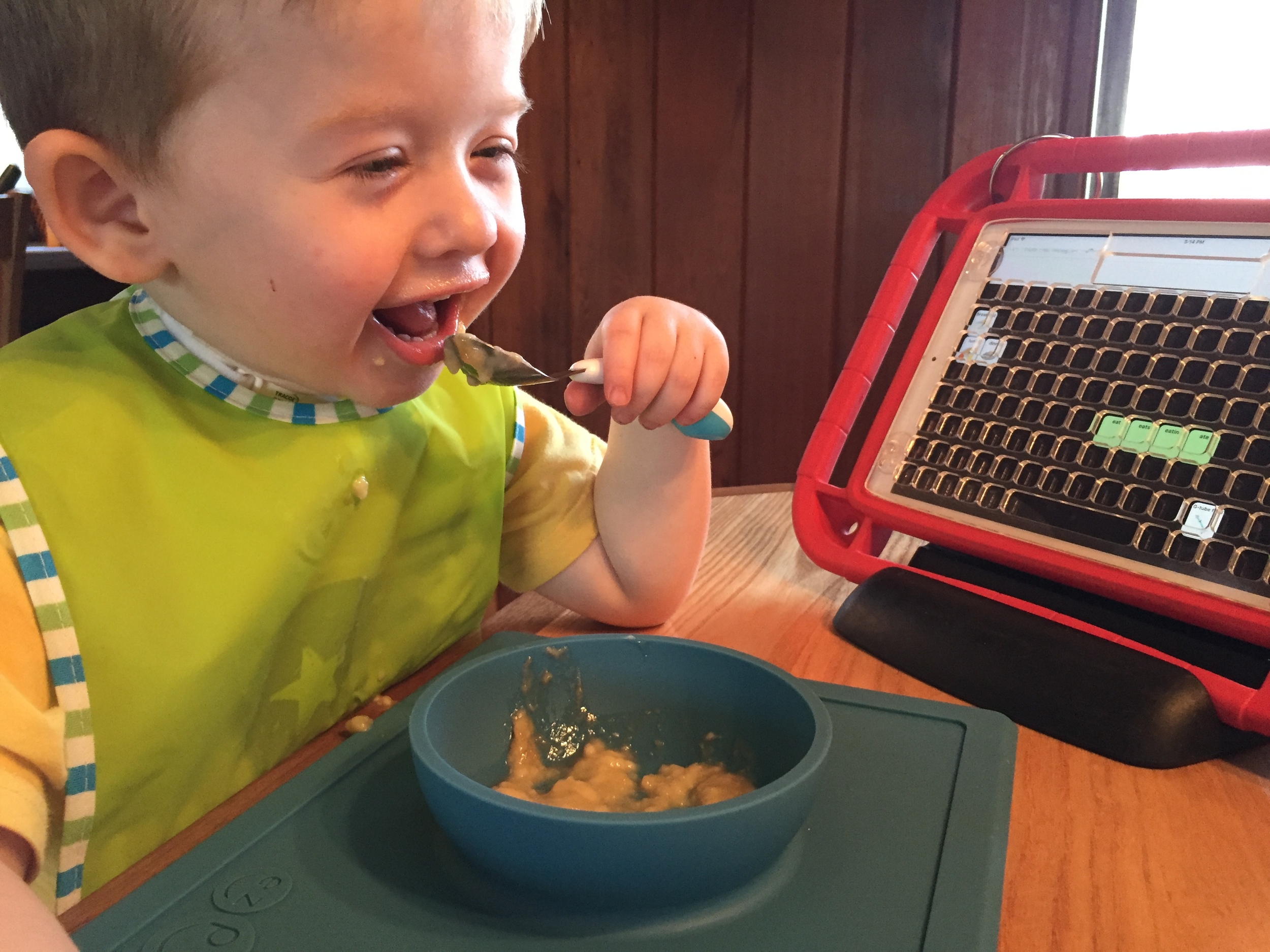Rich's father lived with us when Nathaniel came home in August, 2013. He was ninety-two years old at the time and required assistance with meals. My days were punctuated by preparing, serving, and keeping Grandpa company while he ate breakfast, lunch, dinner. Our family talked at length about how a new baby with intense medical needs would intersect with the responsibilities we were carrying at the time for Grandpa. Grandpa participated in some of those discussions. He firmly encouraged us to move forward with fostering and eventually adopting Nathaniel. He expressed a trust not in our ability to manage the additional demands, but in God's ability to help all of us adapt and make room for a little one who needed a family. "I can make myself a peanut butter and jelly sandwich when I need to," I remembering Grandpa offering.
Nathaniel qualified for private duty nursing support, and I was immediately faced with the question of how to use that help. Do I leave Nathaniel in his bedroom with the nurse for the hours I spend in the kitchen and with Grandpa? Or do I include Nathaniel in those times and try to merge his medical care and staff intimately into family life? His brief stay at the pediatric rehabilitation hospital influenced the decision strongly. The morning of Nathaniel's discharged, I met a Craigslist seller on my way to the hospital and bought a used high chair. Three hours later, Nathaniel was within cane's reach of Grandpa at the table. Grandpa and Nathaniel spent mealtime side by side for close to year. Our day nurse at the time, Danielle, attended to Nathaniel while I prepared Grandpa's meal. Danielle and I slowing altered Nathaniel's g-tube schedule to match Grandpa's meal schedule. Daily at breakfast and lunch, she would warm her packed food and the four of us, plus any older boys who where home at the time, would gather around the table.







